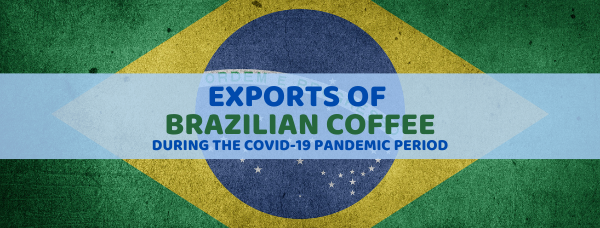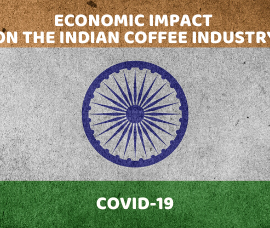The impacts of the COVID-19 pandemic on Brazilian coffee exports. A BSCA interview
Director of BSCA, an association of specialty coffee producers, says that Brazilian coffee has complied with coronavirus and sustainability protocols; beyond the record crop, the production has high quality.
Even with the coronavirus pandemic hindering business, closing borders, and negatively impacting economies around the world, business involving Brazilian coffee has been showing excellent numbers in recent months. In July, the product had its second-highest volume traded in the history of the month. Three million bags were shipped, accounting for US$ 117.4 million in revenue.

For Vanusia Nogueira, president of the BSCA (Brazil Specialty Coffee Association), the high quality of the harvest reflects all the work done by the Brazilian coffee producers. “We show to the public, our customers and international partners that all safety protocols have been adopted and, in addition, that we produce coffees with sustainability and with an incredible quality”. The association leads the project Brazil. The Coffee Nation in partnership with the Brazilian Trade and Investment Promotion Agency (Apex-Brasil), to bring relevant and credible information about Brazilian coffee to other countries.
Brazilian coffee producers are in constant communication with authorities from the Ministry of Agriculture to reduce the risks linked to Covid-19 throughout the product’s production process. “Brazil is prepared to honor its commitments to domestic consumption and exports, as national coffee production fulfills its role of preserving the livelihoods of its professionals,” said Vanusia.
Marcelo Vieira, one of BSCA’s founding members, recalls that the majority of specialty coffee farms in the country are composed of family farmers and these producers are very focused on protection. When you’re working with your own family, avoiding the coronavirus is a priority.
In addition to the proof that Brazilian coffee complies with safety protocols, the increase in the export volume was also linked to the fact that the consumption of coffee increased during the quarantine. This is because people working at home are looking to purchase more of these products to consume. Coffee stocks fell during the quarantine to a two-year low, according to Bloomberg’s data.
As stated in a survey by Field Agent Canada, for example, the number of Canadians who regularly consume coffee on the streets had dropped substantially, from 91% to 46%. On the other hand, the number of online coffee sales has skyrocketed. And a large amount of these people want to consume specialty coffees. A study in the American market by the National Coffee Data Trends, released in April, showed that in the United States about 60% of the coffees served are specialty.
Despite this, the specialty coffee niche still felt the negative effects of the pandemic. “The niche of excellent coffees is formed mainly by small and specialized coffees shops and micro-roasters”, says Vanusia. The sales on the internet, while helping, have not yet covered all the damage. But many experts believe that soon specialty coffees will also be purchased for home consumption.
Brazil. The Coffee Nation
BSCA has a partnership with the Brazilian Trade and Investment Promotion Agency (Apex-Brasil) to carry out the project Brazil – The Coffee Nation. The project’s main objectives are to reinforce the image of green and industrialized Brazilian coffees around the world and add value to the Brazilian product.
BSCA – Brazil Specialty Coffee Association
BSCA’s commitment is to disseminate specialty coffees from all Brazilian regions, for the development of this market, working with transparency and sustainability. It is responsible for disseminating relevant information to members, exchanging experiences and promoting educational activities with partners as well as with national and international organizations. In addition, the association promotes coffee quality contests and official’s championships with professionals in the baristas, roasters and toasters categories, in partnership with international organizations such as the ACE – Alliance for Coffee Excellence and WCE – World Coffee Events.



